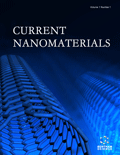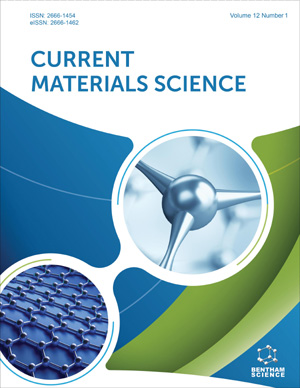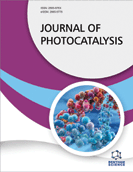Abstract
The naturally available carbohydrate polymer, starch, is biodegradable and biocompatible, making it suitable for drug encapsulation due to the presence of various hydroxy functionalities. Multidrug resistance in antibacterial agents can sometimes limit their use and pose toxicity issues due to dose-related problems resulting from the low bioavailability or solubility of hydrophobic drugs. To address this issue, antibiotics are delivered using nanocarriers that protect therapeutic agents from degradation and enhance the delivery of hydrophobic drugs. This review article discusses the utilization of starch nanoparticles as drug delivery vehicles or carriers for antibacterial agents.
Current Nanomaterials
Title:Antibacterial Drug Development Using Starch Nanoparticles
Volume: 9
Author(s): Smritilekha Bera*
Affiliation:
- School of Chemical Sciences, Central University of Gujarat, Gandhinagar 382030, India
Abstract: The naturally available carbohydrate polymer, starch, is biodegradable and biocompatible, making it suitable for drug encapsulation due to the presence of various hydroxy functionalities. Multidrug resistance in antibacterial agents can sometimes limit their use and pose toxicity issues due to dose-related problems resulting from the low bioavailability or solubility of hydrophobic drugs. To address this issue, antibiotics are delivered using nanocarriers that protect therapeutic agents from degradation and enhance the delivery of hydrophobic drugs. This review article discusses the utilization of starch nanoparticles as drug delivery vehicles or carriers for antibacterial agents.
Export Options
About this article
Cite this article as:
Bera Smritilekha*, Antibacterial Drug Development Using Starch Nanoparticles, Current Nanomaterials 2024; 9 () . https://dx.doi.org/10.2174/0124054615271640231122034023
| DOI https://dx.doi.org/10.2174/0124054615271640231122034023 |
Print ISSN 2405-4615 |
| Publisher Name Bentham Science Publisher |
Online ISSN 2405-4623 |

- Author Guidelines
- Bentham Author Support Services (BASS)
- Graphical Abstracts
- Fabricating and Stating False Information
- Research Misconduct
- Post Publication Discussions and Corrections
- Publishing Ethics and Rectitude
- Increase Visibility of Your Article
- Archiving Policies
- Peer Review Workflow
- Order Your Article Before Print
- Promote Your Article
- Manuscript Transfer Facility
- Editorial Policies
- Allegations from Whistleblowers





















